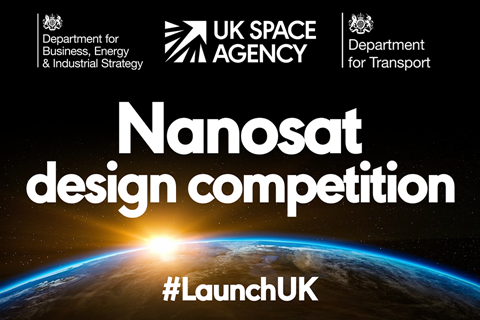A team of students from the University of Kent Physics and Astronomy department have been shortlisted as one of five finalists for the government’s Nanosat Design Competition, competing for a share of a £600,000 Challenge Fund.
The team is made up of Luke Oxlade who is studying Astronomy, Space Science and Astrophysics. He has a passion for space and enjoys astrophotography. Macy Jones, Physics BSC foundation year, is really interested in everything regarding physics and has a passion for learning and discovering new things related to the universe. She is also passionate about being eco-friendly and making our planet a better place for everyone. Luke Cornwell, Physics Ph.D., who also has a passion for space, in particular, spacecraft and rocketry, as well as an interest in sustainability. Alice Brown, Physics BSc foundation year, who has had a passion for anything space related since she was a child, particularly astronomy.
Satellites will begin to launch from the UK for the first time this summer, and the UK Space Agency and LaunchUK have organised a competition to design and build a nanosatellite, which will inform solutions to climate change. The competition aims to introduce young people to a career in the space industry and develop the skills required.
The team called DECSTAR, are designing a satellite to tackle two separate challenges using a GNSS reflectometer. The data collected could help inform the optimal positioning of offshore wind turbines and help to monitor ocean pollution.
The Team said: “Working in the space industry has been our dream for as long as we can remember, and it is our belief that tackling climate change and protecting our planet is the most important global challenge that we all face. It can be hard for individuals to make a difference, so when we saw the call for applications, we knew this was our chance to use our passion to develop a mission that will help the UK’s decarbonisation efforts, and we simply had to apply.”
Transport Minister Trudy Harrison said: “With satellite launches due to start from British soil this year, it’s great to see our young people coming up with brilliant and innovative uses for nanosats in our important battle against climate change.”
“From wind turbines to coastal vegetation, the shortlisted ideas display a wealth of ingenuity and original thinking which I commend.”
Ian Annett, Deputy CEO of the UK Space Agency, said: “These five teams stood out in a competitive field and should be incredibly proud of making it through to the next round of the competition with their climate satellite designs.”

